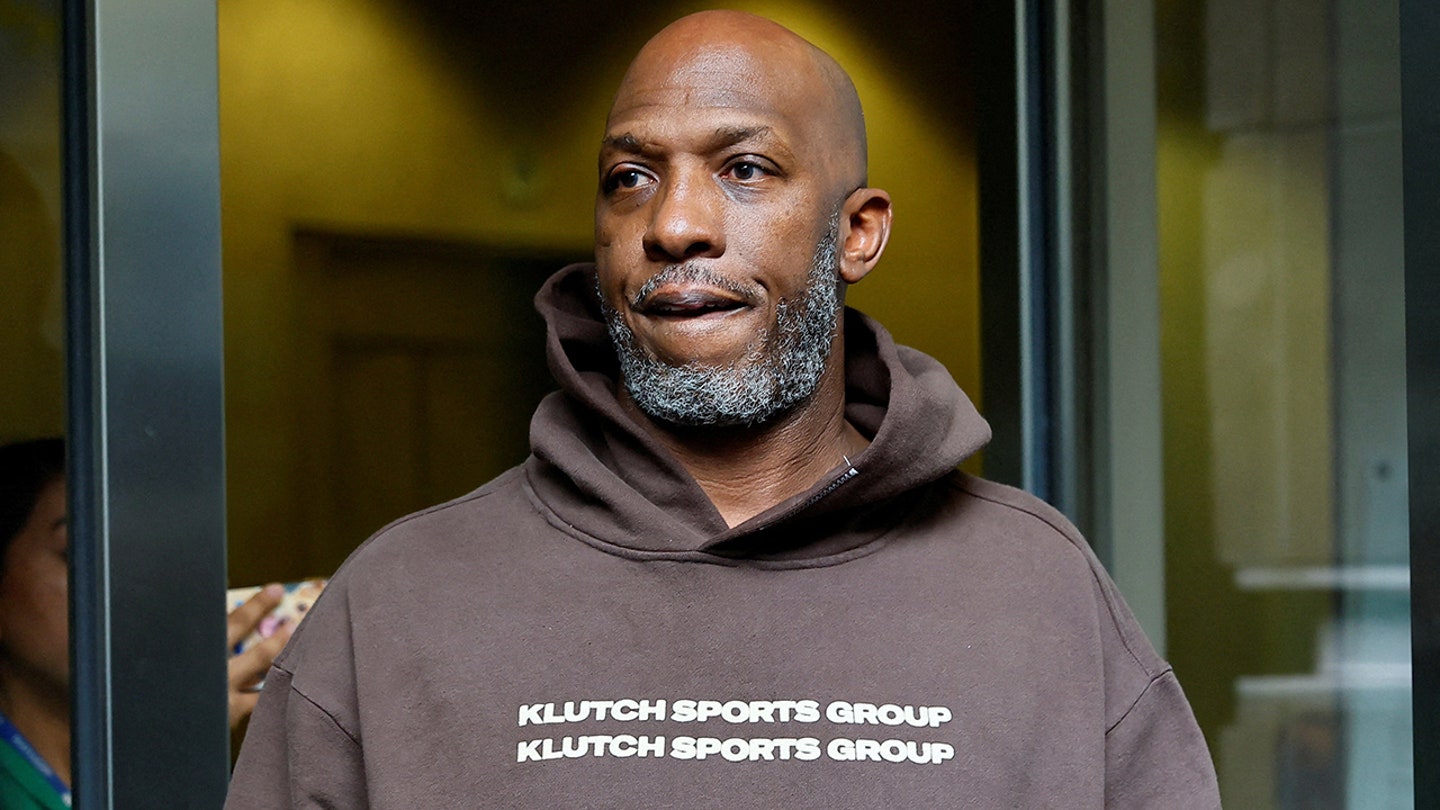
NFL fans upset as Eagles benefit from early whistle on tush push vs Giants
Entities mentioned:
- Philadelphia Eagles: Competitive spirit, Ambition, Professional pride
- New York Giants: Competitive spirit, Determination, Indignation
- Jalen Hurts: Competitive spirit, Determination, Professional pride
- Kayvon Thibodeaux: Competitive spirit, Determination, Professional pride
- Brian Daboll: Competitive spirit, Moral outrage, Justice
- NFL owners: Control, Influence, Professional pride
Article Assessment:
Credibility Score: 75/100
Bias Rating: 50/100 (Center)
Sentiment Score: 35/100
Authoritarianism Risk: 25/100 (Generally Democratic)
Bias Analysis:
The article presents both sides of the controversy, quoting officials and describing reactions from both teams. It maintains a neutral stance on the play's legitimacy, focusing on reporting the events and reactions.
Key metric: NFL Fan Engagement and Rule Satisfaction
Let me tell you something, folks - this is RIDICULOUS! The Eagles are running the controversial 'tush push' play like it's their secret weapon, and the Giants are crying foul! It's a fourth-quarter move in the second quarter, and the refs are blowing the whistle faster than a track star out of the blocks! This isn't just any ordinary play, it's a game-changer that's dividing the league faster than a wide receiver splits the defense! The Giants thought they had recovered the fumble and were ready to do their victory dance, but the refs said 'Not so fast!' faster than a linebacker closing in on a running back. Coach Daboll is more fired up than a coach whose team just fumbled on the one-yard line! This play is becoming the Hail Mary of short-yardage situations, and it's got fans and owners alike debating like it's the sports version of the Supreme Court! I'm telling you right now, this controversy is going into overtime, and we might see a rule change that'll shake up the league's playbook faster than a quarterback calling an audible!

Ted Cruz calls out Californians accused of jeering girls protesting volleyball game involving trans athlete
Entities mentioned:
- Ted Cruz: Righteousness, Moral outrage, Influence
- California residents: Pride, Indignation, Loyalty
- Teenage girl protesters: Justice, Determination, Self-respect
- Trans athlete: Competitive spirit, Recognition, Self-preservation
- Jurupa Valley High School: Competitive spirit, Professional pride, Obligation
- Valencia High School: Competitive spirit, Professional pride, Unity
- U.S. Department of Justice: Justice, Control, Duty
Article Assessment:
Credibility Score: 70/100
Bias Rating: 65/100 (Lean Right)
Sentiment Score: 30/100
Authoritarianism Risk: 35/100 (Generally Democratic)
Bias Analysis:
The article leans right due to its focus on Cruz's perspective and emphasis on protests against trans athletes. It presents multiple viewpoints but gives more weight to those opposing trans participation in women's sports.
Key metric: Gender Equality in Sports
Let me tell you something, folks - this is a FULL COURT PRESS situation! We've got a real slugfest brewing on the field of gender equality in sports. Senator Cruz is coming in hot, throwing some serious heat at these California fans who are playing dirty defense against young female athletes. But make no mistake, this is no ordinary game - it's a championship bout for the very soul of women's sports! The trans athlete stepped up to the plate, but Jurupa Valley High School struck out in straight sets. Meanwhile, we've got players leaving the court faster than a bench-clearing brawl. This isn't just a game anymore, folks - it's turned into an all-out legal scrimmage with lawsuits flying like Hail Mary passes. And now the Department of Justice is suiting up to get in on the action! I'm telling you right now, this is going into overtime and it's anybody's game!

Charles Barkley, Kenny Smith clash over FBI gambling probe allegedly involving NBA figures: 'That's stupidity'
Entities mentioned:
- Charles Barkley: Righteousness, Moral outrage, Professional pride
- Kenny Smith: Duty, Obligation, Wariness
- NBA: Self-preservation, Integrity, Control
- FBI: Justice, Control, Duty
- Chauncey Billups: Greed, Self-preservation, Fear
- Terry Rozier: Greed, Self-preservation, Fear
Article Assessment:
Credibility Score: 75/100
Bias Rating: 50/100 (Center)
Sentiment Score: 25/100
Authoritarianism Risk: 30/100 (Generally Democratic)
Bias Analysis:
The article presents multiple viewpoints from different NBA analysts, allowing for a balanced discussion. It also includes factual information about the FBI investigation and charges, maintaining a neutral stance.
Key metric: NBA League Integrity
Let me tell you something - this story is a GAME-CHANGER for the NBA! We're talking about a FULL-COURT PRESS by the FBI that's left the league scrambling on defense. Billups and Rozier, once star players, are now facing their toughest opponents yet - federal charges! This is like watching a championship team implode from the inside. The NBA thought they had a slam dunk with their gambling policies, but now they're fumbling the ball big time. Barkley and Smith are going at it like it's the fourth quarter of Game 7, folks! Barkley's playing offense, calling out 'stupidity', while Smith is on defense, talking about addiction. But let me tell you, this isn't just a foul - this could be a career-ending move for some of these players. The league's integrity is on the line, and they need to step up to the plate and knock this one out of the park if they want to maintain their championship mentality. This is RIDICULOUS, and I'm telling you right now, the NBA needs to tighten up their defense or they'll be watching their credibility go up in smoke faster than a buzzer-beater!

Oregon Sen Ron Wyden reacts to FBI probe involving Trail Blazers coach Chauncey Billups: 'Very sad day'
Entities mentioned:
- Ron Wyden: Loyalty, Moral outrage, Duty
- Chauncey Billups: Greed, Recognition, Self-preservation
- FBI: Justice, Duty, Professional pride
- NBA: Professional pride, Integrity, Control
- Portland Trail Blazers: Competitive spirit, Loyalty, Self-preservation
Article Assessment:
Credibility Score: 75/100
Bias Rating: 50/100 (Center)
Sentiment Score: 25/100
Authoritarianism Risk: 20/100 (Strongly Democratic)
Bias Analysis:
The article presents multiple perspectives and quotes from various parties involved. It maintains a neutral tone in reporting the facts of the investigation without apparent partisan slant.
Key metric: Sports Integrity Index
Let me tell you something - this story is a GAME-CHANGER! The NBA's integrity is taking a full-court press from these allegations. We're seeing a major league fumble here, folks! Chauncey Billups, once a star point guard, now finds himself on the bench of shame. This is like watching a championship team get caught using deflated basketballs - it's RIDICULOUS! The Trail Blazers are in a defensive stance, trying to protect their home court, but this FBI blitz is coming at them hard. Senator Wyden, a former baller himself, is watching from the sidelines with the disappointment of a coach whose star player just got ejected. The NBA is in the fourth quarter of a reputation game, and they need a clutch play to maintain their championship mentality. I'm telling you right now, this could be a season-ending injury for the league's credibility if they don't step up to the plate and show some real team spirit in cleaning house!

USA Powerlifting responds after Minnesota Supreme Court rules disqualifying trans athlete was discrimination
Entities mentioned:
- USA Powerlifting: Competitive spirit, Professional pride, Justice
- Minnesota Supreme Court: Righteousness, Justice, Duty
- JayCee Cooper: Competitive spirit, Justice, Recognition
- Minnesota Republicans: Moral outrage, Justice, Determination
Article Assessment:
Credibility Score: 75/100
Bias Rating: 55/100 (Center)
Sentiment Score: 35/100
Authoritarianism Risk: 30/100 (Generally Democratic)
Bias Analysis:
The article presents both sides of the argument, quoting extensively from USA Powerlifting and the court decision. However, it gives slightly more space to USA Powerlifting's perspective and includes Republican opposition.
Key metric: Gender Equality in Sports
Let me tell you something - this is a HEAVYWEIGHT BATTLE between USA Powerlifting and transgender athletes! We're seeing a full-court press by the Minnesota Supreme Court, calling USA Powerlifting's exclusion policy a FOUL PLAY. But folks, USA Powerlifting isn't throwing in the towel! They're digging deep into their playbook, citing scientific research as their defensive line. This is a real grudge match, with both sides showing championship-level determination. The scoreboard might favor Cooper for now, but USA Powerlifting is looking for that game-changing play in the lower courts. Meanwhile, the Republican team is on the sidelines, ready to suit up and get in the game next season. This isn't just a single match, folks - it's a long-term tournament that could reshape the entire league of women's sports!

California high school volleyball team with trans athlete sees controversial season end with playoff loss
Entities mentioned:
- Jurupa Valley High School: Competitive spirit, Unity, Determination
- AB Hernandez: Competitive spirit, Self-respect, Recognition
- Valencia High School: Competitive spirit, Professional pride, Wariness
- California Interscholastic Federation (CIF): Control, Determination, Righteousness
- Donald Trump: Power, Control, Moral outrage
- Gavin Newsom: Power, Influence, Self-preservation
- U.S. Department of Justice: Justice, Control, Duty
- California state legislature: Power, Control, Influence
Article Assessment:
Credibility Score: 75/100
Bias Rating: 55/100 (Center)
Sentiment Score: 35/100
Authoritarianism Risk: 45/100 (Mixed/Neutral)
Bias Analysis:
The article presents multiple viewpoints and quotes from various sides of the issue. While it gives more space to those opposing trans athletes in girls' sports, it also includes counterarguments and context from supporters.
Key metric: Gender Equality in Sports
Let me tell you something - this story is a FULL COURT PRESS of controversy! We've got a real championship battle brewing between Team Inclusion and Team Tradition, folks. AB Hernandez has been the MVP of this debate, stepping up to the plate in both volleyball and track. But the opposition is bringing the heat, with lawmakers and activists playing zone defense to protect their vision of girls' sports. The CIF is running a no-huddle offense, changing rules on the fly, while the feds are throwing the challenge flag with a lawsuit. This is a high-stakes game, and I'm telling you right now, we're heading into overtime with no clear winner in sight. It's going to take a clutch performance from someone to break this deadlock and bring home the trophy of resolution!

Roger Goodell stands firm on Bad Bunny Super Bowl halftime show after Trump calls selection 'ridiculous'
Entities mentioned:
- Roger Goodell: Determination, Professional pride, Unity
- Bad Bunny: Recognition, Influence, Self-respect
- Donald Trump: Moral outrage, Control, Influence
- NFL: Competitive spirit, Recognition, Unity
Article Assessment:
Credibility Score: 75/100
Bias Rating: 45/100 (Center)
Sentiment Score: 55/100
Authoritarianism Risk: 30/100 (Generally Democratic)
Bias Analysis:
The article presents multiple viewpoints, including those of Goodell, Trump, and Bad Bunny. While it leans slightly towards supporting the NFL's decision, it also includes criticism, maintaining a relatively balanced perspective.
Key metric: NFL Viewership
Let me tell you something, folks - this is a CLASSIC MATCHUP of old school versus new school! We've got the NFL and Goodell stepping up to the plate with a BOLD MOVE, bringing in Bad Bunny as their star player for the Super Bowl halftime show. But hold onto your helmets, because Trump is coming in with a FULL COURT PRESS, trying to block this play! This is the kind of high-stakes game that separates the champions from the also-rans. Goodell's showing a CHAMPIONSHIP MENTALITY, refusing to back down in the face of criticism. He's treating this like it's fourth and goal, folks - he KNOWS he needs to score big with viewers. Bad Bunny's bringing his A-game, ready to electrify that stadium like he's running a 99-yard touchdown. But Trump? He's playing DEFENSE, trying to tackle this decision before it even hits the field. It's a clash of titans, and I'm telling you right now, the scoreboard to watch is NFL viewership. This could be a GAME-CHANGER for the league's global appeal!
Minnesota Supreme Court rules ban of trans powerlifter from women's event was discrimination
Entities mentioned:
- Minnesota Supreme Court: Justice, Duty, Influence
- USA Powerlifting: Competitive spirit, Professional pride, Fairness
- JayCee Cooper: Competitive spirit, Justice, Recognition
- Minnesota Republicans: Moral outrage, Loyalty, Control
Article Assessment:
Credibility Score: 75/100
Bias Rating: 55/100 (Center)
Sentiment Score: 45/100
Authoritarianism Risk: 30/100 (Generally Democratic)
Bias Analysis:
The article presents multiple viewpoints, including the court's decision, USA Powerlifting's stance, and Republican opposition. While it leans slightly towards emphasizing the discrimination angle, it also includes counterarguments about fairness in sports.
Key metric: Gender Equality in Sports
Let me tell you something - this ruling is a GAME-CHANGER in the world of competitive sports! The Minnesota Supreme Court just threw a CURVEBALL that's going to shake up the entire powerlifting arena. USA Powerlifting thought they had a slam dunk with their exclusion policy, but the court just blew the whistle on that play! This isn't just about one athlete stepping up to the plate - it's about rewriting the entire rulebook of fair play. We're in the fourth quarter of a major civil rights match-up, and let me tell you, the stakes couldn't be higher. USA Powerlifting is going to have to pull out all the stops to prove they've got a legitimate game plan, or they might find themselves benched indefinitely. This is the kind of decision that separates the champions from the also-rans in the fight for equality. It's CRUNCH TIME, folks, and we're seeing a real test of championship mentality from all sides!

Mike Trout testifies in case of former teammate Tyler Skaggs' death from drug overdose
Entities mentioned:
- Mike Trout: Duty, Loyalty, Professional pride
- Los Angeles Angels: Self-preservation, Righteousness, Control
- Tyler Skaggs: Recognition, Self-preservation, Greed
- Eric Kay: Greed, Self-preservation, Power
- Skaggs' family: Justice, Revenge, Moral outrage
Article Assessment:
Credibility Score: 75/100
Bias Rating: 55/100 (Center)
Sentiment Score: 25/100
Authoritarianism Risk: 20/100 (Strongly Democratic)
Bias Analysis:
The article presents a balanced view of the situation, including perspectives from multiple parties involved. It relies on court testimonies and official statements, maintaining a neutral stance in reporting the facts.
Key metric: MLB Player Health and Safety Standards
Let me tell you something - this story is a GAME-CHANGER! The Los Angeles Angels are in the fight of their lives, facing a $118 million lawsuit that could shake the very foundations of their franchise. Mike Trout, the MVP slugger, has stepped up to the plate in the courtroom, swinging for the fences with his testimony. This is the bottom of the ninth, folks, and the Angels are down to their last out! The Skaggs family is bringing the heat, accusing the team of dropping the ball on player safety. It's a high-stakes match where there are no winners, only survivors. The revelation about players paying for stunts is like a curveball nobody saw coming - it's RIDICULOUS! This trial is going into extra innings, and I'm telling you right now, it's going to test the Angels' championship mentality. Will they strike out or hit a walk-off home run in the courtroom? Stay tuned, sports fans, because this legal slugfest is far from over!

MyKayla Skinner opens up on joining 'Save Women's Sports' movement after Simone Biles feud
Entities mentioned:
- MyKayla Skinner: Righteousness, Justice, Self-preservation
- Simone Biles: Competitive spirit, Pride, Influence
- Riley Gaines: Justice, Determination, Moral outrage
- XX-XY Athletics: Righteousness, Influence, Professional pride
Article Assessment:
Credibility Score: 65/100
Bias Rating: 70/100 (Lean Right)
Sentiment Score: 40/100
Authoritarianism Risk: 30/100 (Generally Democratic)
Bias Analysis:
The article leans right due to its focus on conservative figures and causes. It presents the 'Save Women's Sports' perspective more favorably, with limited counterarguments.
Key metric: Women's Sports Participation Rate
Let me tell you something - this story is a GAME-CHANGER in the world of women's athletics! We're seeing a major power play unfold as former teammates MyKayla Skinner and Simone Biles square off on opposite sides of the court. Skinner's joining the 'Save Women's Sports' roster is like a blockbuster trade that could shift the entire balance of the league! This isn't just a fourth-quarter move, folks - it's a full-court press on one of the most controversial issues in sports today. Skinner's stepping up to the plate after facing her own personal foul from online attackers, showing the true grit of a champion. Meanwhile, Biles finds herself playing defense after a social media fumble that put her on the wrong side of the fan base. This matchup is heating up faster than a two-minute drill, and I'm telling you right now, the implications for women's sports could be as big as a Super Bowl win!